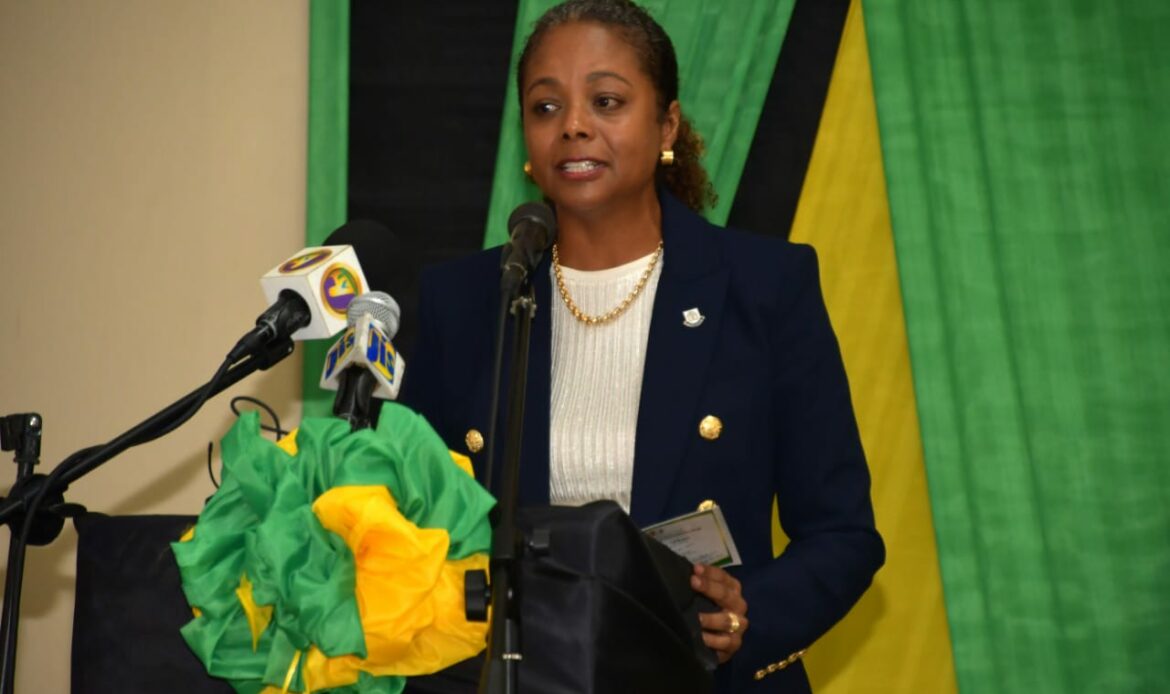| Hon. Marlene Malahoo Forte, Minister of Legal and Constitutional Affairs, during her statement in the Parliament yesterday (Tuesday, October 3), revealed that the Office of the President of the Republic of Jamaica features prominently in the current deliberations of the members of the Constitutional Reform Committee (CRC). The Minister further reported that the CRC has reached consensus on the process of presidential selection. According to her: “There was consensus [among the CRC] that the Head of State should be nominated by the Head of Government in and after consultation with the Leader of the Opposition and confirmed by the Parliament via affirmative resolutions on a two-thirds (2/3) majority vote.” “A super-majority would signal consensus on the selection of the President,” she added. Minister Malahoo Forte indicated that the CRC has discussed the powers to be vested in the Office of the President, which are to be executed separately from those of the Office of the Prime Minister. This would place the Office of President above the political fray. “The Committee affirmed that the Office of the President would be separate from the Office of the Prime Minister, with the latter serving as the political Head of Government of the Republic of Jamaica,” she added. This consensus, the Minister pointed out, is consistent with the recommendations suggested by the 1995 Joint Select Committee on Constitutional and Electoral Reform (JSCCER). The Minister also announced that a sub-committee, chaired by Senator Ransford Braham, has been established to provide a comparative overview of what currently exists between the Government and the Governor-General. She stated that: “The State Affairs Sub-Committee is responsible for reviewing the existing powers exercised by the Monarch through the Governor-General, under the Constitution, and any other relevant laws, or by convention, to determine what, if any, additional powers should be vested in the Office of the President for the Republic of Jamaica.” She pointed out, however, that there is need for greater clarity on the forms of president. She elucidated each form as follows: “The first is the Executive President. It is the Presidential system where the Head of State is politically selected or elected, with executive powers covering substantial areas of government. The second is the Non-Executive President who is the formal Head of State performing merely ceremonial functions. The third is a formal Head of State who does not only perform ceremonial functions, but in whom is vested certain powers which do not involve the daily administration of government.”The Office of the President is now at the centre of the deliberations of the Constitutional Reform Committee Hon. Marlene Malahoo Forte, Minister of Legal and Constitutional Affairs, during her statement in the Parliament yesterday (Tuesday, October 3), revealed that the Office of the President of the Republic of Jamaica features prominently in the current deliberations of the members of the Constitutional Reform Committee (CRC). The Minister further reported that the CRC has reached consensus on the process of presidential selection. According to her: “There was consensus [among the CRC] that the Head of State should be nominated by the Head of Government in and after consultation with the Leader of the Opposition and confirmed by the Parliament via affirmative resolutions on a two-thirds (2/3) majority vote.” “A super-majority would signal consensus on the selection of the President,” she added. Minister Malahoo Forte indicated that the CRC has discussed the powers to be vested in the Office of the President, which are to be executed separately from those of the Office of the Prime Minister. This would place the Office of President above the political fray. “The Committee affirmed that the Office of the President would be separate from the Office of the Prime Minister, with the latter serving as the political Head of Government of the Republic of Jamaica,” she added. This consensus, the Minister pointed out, is consistent with the recommendations suggested by the 1995 Joint Select Committee on Constitutional and Electoral Reform (JSCCER). The Minister also announced that a sub-committee, chaired by Senator Ransford Braham, has been established to provide a comparative overview of what currently exists between the Government and the Governor-General. She stated that: “The State Affairs Sub-Committee is responsible for reviewing the existing powers exercised by the Monarch through the Governor-General, under the Constitution, and any other relevant laws, or by convention, to determine what, if any, additional powers should be vested in the Office of the President for the Republic of Jamaica.” She pointed out, however, that there is need for greater clarity on the forms of president. She elucidated each form as follows: “The first is the Executive President. It is the Presidential system where the Head of State is politically selected or elected, with executive powers covering substantial areas of government. The second is the Non-Executive President who is the formal Head of State performing merely ceremonial functions. The third is a formal Head of State who does not only perform ceremonial functions, but in whom is vested certain powers which do not involve the daily administration of government.” |

